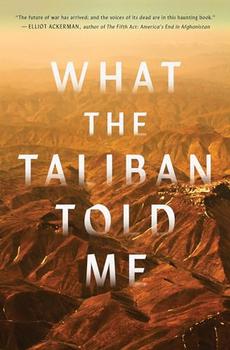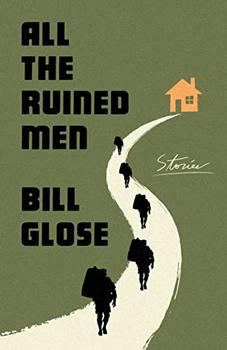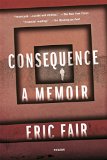Summary | Excerpt | Reviews | Beyond the book | Read-Alikes | Genres & Themes | Author Bio

A powerful, timely memoir of a young Air Force linguist coming-of-age in a war that is lost.
When Ian Fritz joined the Air Force at eighteen, he did so out of necessity. He hadn't been accepted into college thanks to an indifferent high school career. He'd too often slept through his classes as he worked long hours at a Chinese restaurant to help pay the bills for his trailer-dwelling family in Lake City, Florida.
But the Air Force recognizes his potential and sends him to the elite Defense Language Institute in Monterey, California, to learn Dari and Pashto, the main languages of Afghanistan. By 2011, Fritz was an airborne cryptologic linguist and one of only a tiny number of people in the world trained to do this job on low-flying gunships. He monitors communications on the ground and determines in real time which Afghans are Taliban and which are innocent civilians. This eavesdropping is critical to supporting Special Forces units on the ground, but there is no training to counter the emotional complexity that develops as you listen to people's most intimate conversations. Over the course of two tours, Fritz listens to the Taliban for hundreds of hours, all over the country night and day, in moments of peace and in the middle of battle. What he hears teaches him about the people of Afghanistan—Taliban and otherwise—the war, and himself. Fritz's fluency is his greatest asset to the military, yet it becomes the greatest liability to his own commitment to the cause.
Both proud of his service and in despair that he is instrumental in destroying the voices that he hears, What the Taliban Told Me is a brilliant, intimate coming-of-age memoir and a reckoning with our twenty years of war in Afghanistan.
This is a rare inside look at what airborne linguists do, and Fritz excels at describing difficult and highly technical processes in a way most can understand. He is also bitingly funny while doing it. But underneath the pages of sarcastic, stream-of-consciousness riffing, there is a palpable sense of a man grappling with his role in raining death on the heads of human beings below him. The reader sees the progression from the gung-ho airman who believes in the Taliban as "evil" and the Americans as the "good guys" to a man who listens to their boring, banal (but sometimes funny) conversations day after day and begins to see them as something else: human...continued
Full Review
(926 words)
This review is available to non-members for a limited time. For full access,
become a member today.
(Reviewed by Peggy Kurkowski).
 Ian Fritz's memoir, What the Taliban Told Me, chronicles the author's difficulties processing his role in events that resulted in death and injury to others. Not officially diagnosed with post-traumatic stress disorder (PTSD), Fritz discusses a category of non-physical harm that military experts denote as "moral injury," which he says is closer to what he suffered during his deployment in Afghanistan. But what precisely is moral injury, and in what ways does it differ from the more well-known PTSD designation?
Ian Fritz's memoir, What the Taliban Told Me, chronicles the author's difficulties processing his role in events that resulted in death and injury to others. Not officially diagnosed with post-traumatic stress disorder (PTSD), Fritz discusses a category of non-physical harm that military experts denote as "moral injury," which he says is closer to what he suffered during his deployment in Afghanistan. But what precisely is moral injury, and in what ways does it differ from the more well-known PTSD designation?
According to Syracuse University's Moral Injury Project (cited in Fritz's book), moral injury constitutes "the damage done to one's conscience or moral compass when that person perpetrates, ...
This "beyond the book" feature is available to non-members for a limited time. Join today for full access.

If you liked What the Taliban Told Me, try these:

by Bill Glose
Published 2022
For readers of Phil Klay, Kevin Powers, and Tim O'Brien: Dramatic, powerful, authentic short stories of soldiers fighting a "forever war," in combat and back home.

by Eric Fair
Published 2017
A man questions everything - his faith, his morality, his country - as he recounts his experience as an interrogator in Iraq; an unprecedented memoir and "an act of incredible bravery." (Phil Klay)
The whole problem with the world is that fools and fanatics are always so certain of themselves, and wiser people ...
Click Here to find out who said this, as well as discovering other famous literary quotes!